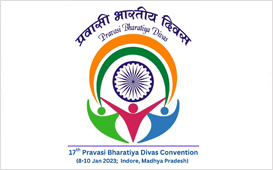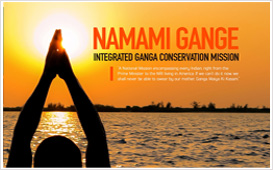Thank you Marise.
Minister Payne, friends of the media.
Let me at the outset thank you Marise for welcoming me and my delegation to Australia, to Melbourne, my first time here, for your hospitality, the wonderful arrangements.
This is in fact, I think, the first physical Ministerial visit from our side in the last two years after the Covid and I think we have had very productive, very useful, very wide-ranging discussions and a lot of our discussions in fact reflect the real profound transformation in our ties which has happened in this very difficult period of the Covid.
We have just concluded the 12th Foreign Ministers’ Framework Dialogue (FMFD) and equally importantly, the 1st Foreign Ministers Cyber Framework Dialogue. And the Cyber Framework Dialogue is a direct outcome of the virtual Summit between our Prime Ministers which was held in June when we actually elevated our ties to a Comprehensive Strategic Partnership.
There have been other direct outcomes from that Summit, including the first 2+2 Ministerial Dialogue, when I had the pleasure of welcoming you and Minister Dutton to India. And before I come down to our discussions, I want to say I very warmly welcome the announcements made by you, by the Australian government on enhancing engagement in the North-East Indian Ocean region and on the Maitri scholarship, fellowship and cultural partnership programs.
Our discussions today, let me speak about that, I think they were very comprehensive, they were very fruitful. We really looked at a very wide range of our bilateral, regional, global partnership. And I again welcome announcements of the additional resources that the government of Australia would be committing for further deepening of our partnership.
Now we shared our experiences responding to the Covid challenge itself, but also in assisting other friendly countries particularly with vaccines. And we have committed ourselves today to building more trusted and resilient supply chains and ensuring broad inclusive growth in the Indo-Pacific.
I welcomed the opening of borders by the Government of Australia which will help those who have been in India waiting to come back, especially students, temporary visa holders, separated families and this is something which is greatly appreciated. I had yesterday an opportunity to meet some student representatives. Really, their spirits were much higher after learning of this decision.
Again, I want to echo the very positive evaluation you have of Minister Tehan’s discussion with his counterpart, Minister Goyal on the CECA negotiations and we certainly hope that they would make rapid progress this year.
We discussed briefly today, Minister Payne and I our progress in our defence and security cooperation which reflects our growing strategic convergence. I had an opportunity to talk about some of these issues with Minister Dutton yesterday morning.
The inaugural Cyber Framework Dialogue was particularly useful in reviewing our joint activities under our Framework Agreement. We discussed some of our shared challenges and opportunities for closer collaboration in this very important domain.
Minister Payne and I also shared concerns about terrorism and extremism. We have serious concerns about continuing cross-border terrorism and it’s our shared endeavour to deepen counter-terrorism cooperation, including in the multilateral fora.
We spoke at some length about regional and multilateral matters, global issues as well. There was an exchange of view on South Asia, on Southeast Asia, on the Indo-Pacific region. And I emphasized today, as I did yesterday after the Quad meeting, that as liberal democracies, we would continue to work towards a rules-based international order, freedom of navigation in international waters, promoting connectivity, growth and security for all while respecting the territorial integrity and sovereignty of all States.
Once again, I would like to express my thanks to you Marise, to the Government of Australia, to the State of Victoria for the warm welcome. I join you in also appreciating the work of our High Commissioners and their teams for the progress that we have made, and I extend an invitation to you to visit India at a time convenient to you.
Once again, thank you very much.
’s lecture – "Australia, India and the Indo-Pacific” – is in keeping with this spirit. We live in times of many known unknowns and unknown unknowns. What we do know, however – and here I refer to a phrase Dr Fullilove just used – is that "wealth and power are shifting eastwards – towards India and Australia” and the Indo-Pacific region.
3. While the determinants of power and of foreign policy remain constant, the strategies and approaches to optimise them are changing rapidly. Multilateralism is under stress. New and nimble institutional arrangements – the Quad among them – are attempting to fill gaps. Supply chains are being re-ordered. Trade arrangements are factoring in not merely costs between economies but more so trust between polities.
4. The notion of national security has broadened beyond recognition. Strategic autonomy today is not just a political or military construct; it applies equally to dependencies in technology, supply chains, and critical commodities, including pharmaceuticals and medical equipment. These trendlines have sharpened during the Covid-19 pandemic.
5. As the waters of the Indo-Pacific seek a new equilibrium, India and Australia are drawn by a natural affinity in political systems, economic endeavours and, above all, values. As two major democracies of this region, our partnership is of enormous significance in the building of a rules-based global order, with a stable and prosperous Indo-Pacific as its fulcrum.
6. The rapid momentum that the India-Australia relationship has demonstrated in recent years is testimony to this. At the Ministry of External Affairs, our friends down under get top-of-the-mind treatment. That is why the decision to invite Dr. Fullilove to speak at the 2nd Vajpayee Memorial Lecture was swift, simple and spontaneous. Once again, I thank him for accepting and for delivering today’s lecture.
7. I wish to convey grateful thanks to the Minister of External Affairs Dr. S. Jaishankar for presiding over the event and delivering the opening remarks. The idea of this lecture was his. He has nudged the Ministry towards stronger engagement with think tanks and leading foreign policy scholars. And we have benefited enormously from such linkages.
8. I thank our High Commissioner in Canberra, my colleague Shri Manpreet Vohra, and his team for being here today. The logistics for the lecture were coordinated between India and Australia by the Policy Planning and Research Division of the MEA, and I must appreciate Joint Secretary Shri Anupam Ray and OSD Shri Sumit Seth. A very special word of thanks to the Additional Secretary & Policy Advisor of the Ministry Shri Ashok Malik for taking on much of the responsibility in most ably organising this event.
9. Above all, I thank all of you for logging in. As we close, just in time for Christmas eve celebrations here in India, I wish everyone Merry Christmas, and convey good wishes from the MEA for a safe and happy 2022.
Namaskar and stay well.


































